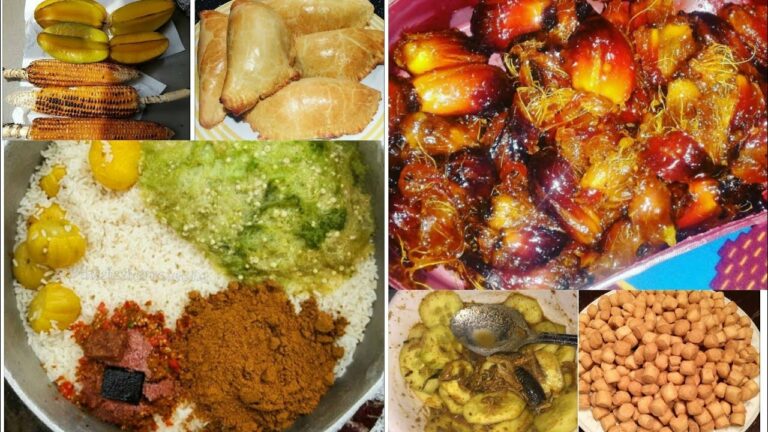Introduction: Palm oil in Sierra Leonean cuisine
Palm oil is a staple ingredient in Sierra Leonean cuisine, providing a rich, distinctive flavour to many local dishes. It is widely used in both savoury and sweet recipes, such as stews, soups, fritters, and baked goods. Palm oil is particularly popular in West African countries, including Sierra Leone, where it has been a traditional food item for centuries.
Historical use of palm oil in Sierra Leonean cuisine
Palm oil has been a vital part of traditional Sierra Leonean cuisine for generations, with its use dating back to ancient times. The oil is extracted from the fruit of the oil palm tree, which is native to West Africa, and is often produced locally by small-scale farmers. The oil’s distinct flavour and rich texture make it a popular choice for cooking, and it is used in a variety of dishes, from jollof rice and groundnut stew to cassava leaves and plantain fritters.
Nutritional value of palm oil in Sierra Leonean dishes
Palm oil is rich in vitamins A and E, antioxidants that promote healthy vision and skin, and support the immune system. It also contains healthy fats that are beneficial for heart health and can help to lower cholesterol levels. In Sierra Leone, where malnutrition is a significant problem, palm oil is an essential source of nutrition for many people. Additionally, its high caloric content makes it an ideal energy source for those engaging in manual labor.
Environmental impact of palm oil production in Sierra Leone
The production of palm oil can have a significant environmental impact, particularly in areas where land is cleared for palm oil plantations. In Sierra Leone, the expansion of palm oil farming has led to the destruction of natural habitats and deforestation, contributing to climate change and threatening the survival of wildlife. This has prompted some consumers and environmental activists to call for alternative sources of oil that are more sustainable and environmentally friendly.
Alternatives to palm oil in Sierra Leonean cooking
There are several alternatives to palm oil that can be used in Sierra Leonean cooking, including vegetable oil, sunflower oil, and olive oil. These oils are readily available in local markets and are often less expensive than palm oil. However, they may not provide the same flavour and nutritional benefits as palm oil, and some consumers may prefer the taste of traditional dishes made with palm oil.
Conclusion: The role of palm oil in Sierra Leonean cuisine
Palm oil is an essential ingredient in Sierra Leonean cuisine, providing flavour, nutrition, and energy to many local dishes. While the production of palm oil can have negative environmental impacts, there are efforts underway to promote more sustainable practices and reduce the industry’s impact on the environment. Ultimately, the use of palm oil in Sierra Leonean cuisine reflects the country’s rich culinary traditions and cultural heritage.

